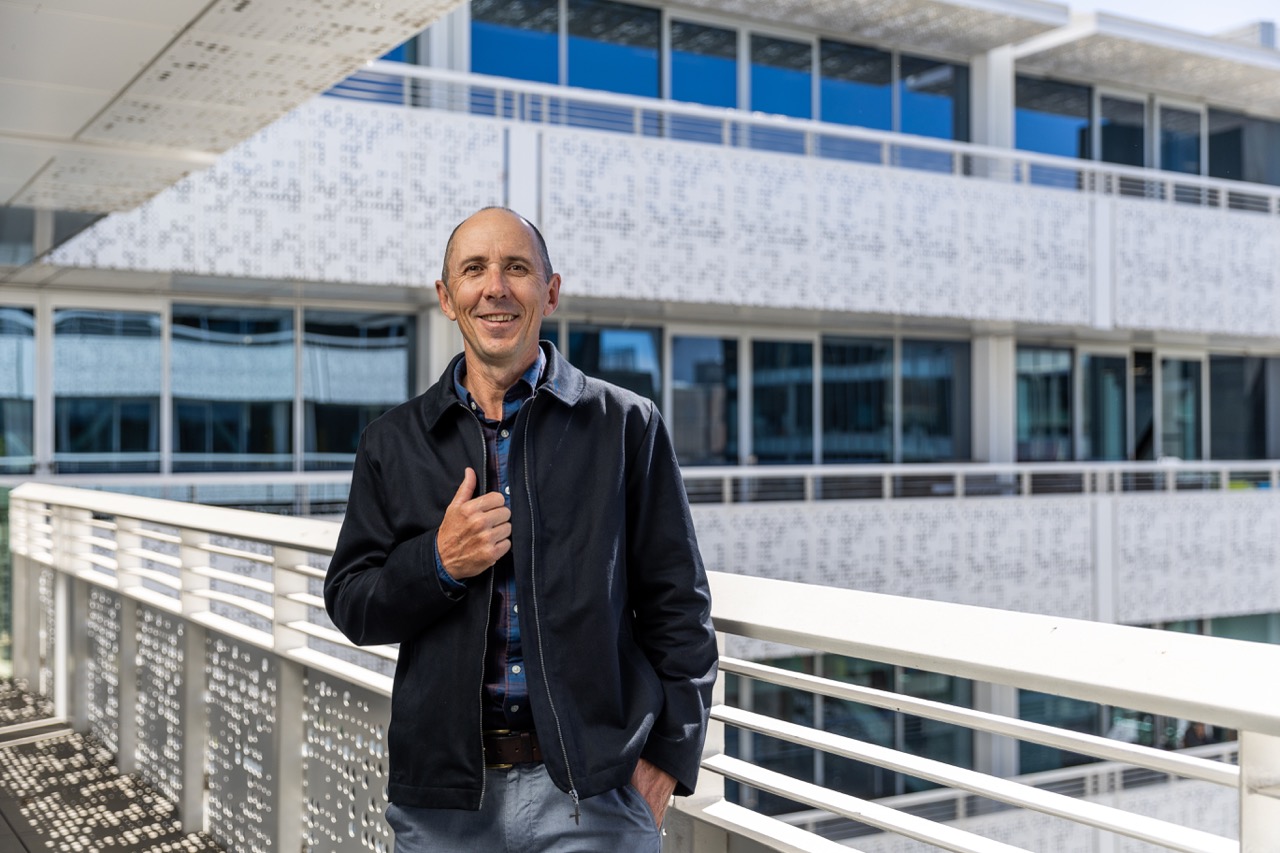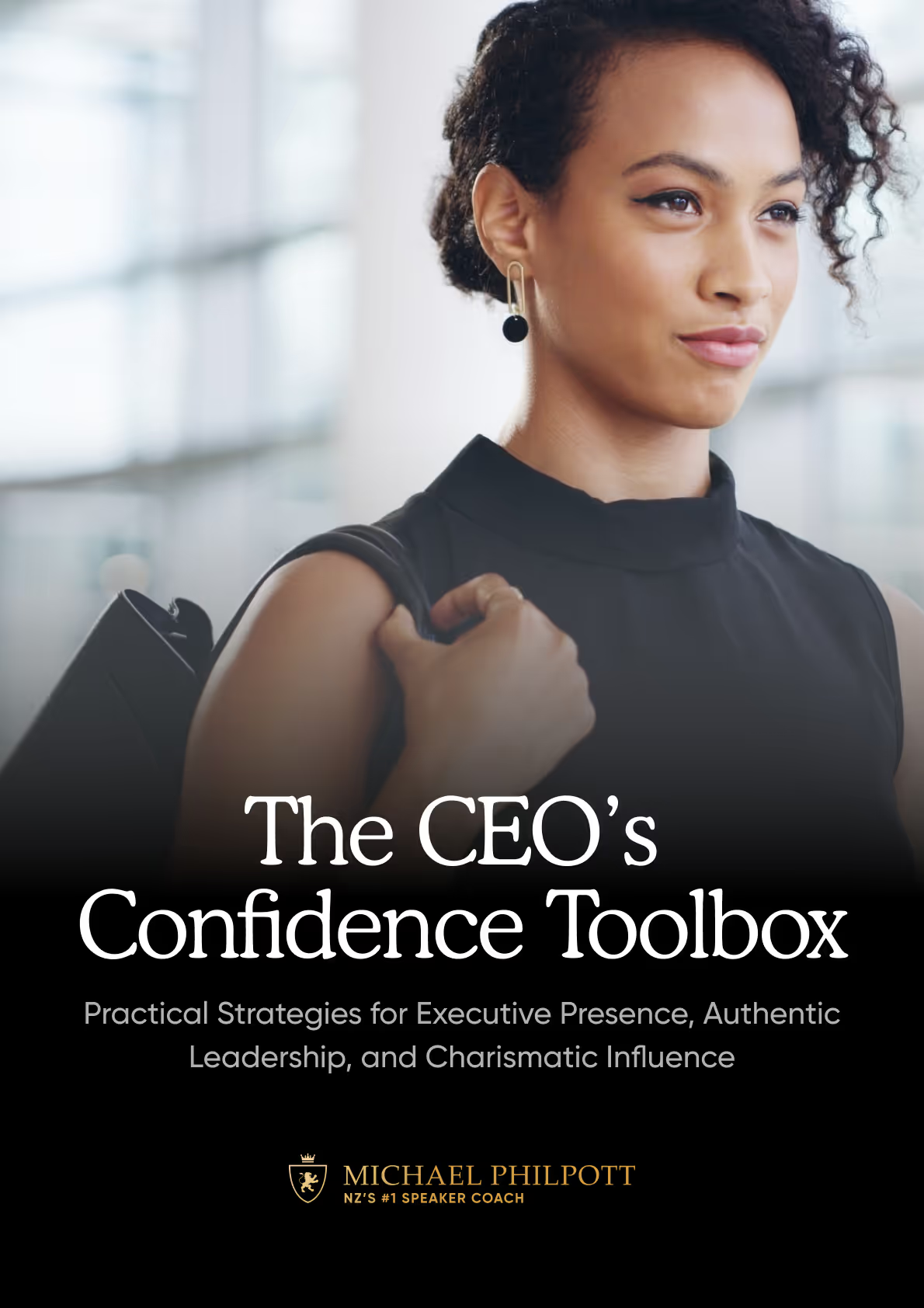
How do you handle the dilemma of promoting your city to inspire others when public speaking is not your forte? That’s the challenge confronting Dave Tayler at ChristchurchNZ, the city’s economic development agency.
Dave Tayler works as head of Ōtautahi Christchurch’s Antarctic Office, an organisation set up to realise the value of the city’s Antarctic gateway status.
Back in 2021, Dave asked us to coach a group from ChristchurchNZ to be better presenters. He explains why.
“From our innovation and business growth team to our tourism marketing specialists, every single person within our organisation is doing such inspiring stuff. I wanted to be equipped to effectively share our compelling narrative, as public engagement is a significant aspect of my role. We’ve all seen those speakers who can hold a room, I knew I wasn't there with my presentation skills and I wanted to do justice to our incredible work.”

Embed a culture of quality presenting in your organisation
Dave knew how often people do training, take on a big hit of knowledge, then get busy and forget all their new skills. And he didn’t want that to happen here. We agreed we’d start with a full day’s workshop, then meet every six weeks for a year to build on that base.
A group of 12 people came together from across ChristchurchNZ, and we kicked off with the workshop at the end of 2022. Dave says, “The workshop was great. Michael brings a ton of energy and creates a real animated, fun, learning experience.”
“I loved that we were pushed out of our comfort zone. It was difficult, but that’s where you learn the most. Michael doesn’t slowly handhold you into learning. He pushes you off the bridge and you've got to fight your way back on. It may feel like being thrown into the deep end, but this approach pushed me to confront challenges head-on and my learning accelerated as a result.”
“We tried new techniques like being videoed. My initial video was an absolute shambles, but we learned through iteration. Throughout the day we all gained more confidence. And even though my last video of the day wasn't TEDx perfect, I could see I was on the right journey. I knew what I needed to iron out, and I knew with time I’d get there.”

Ongoing coaching to bring your learning to life
Our long game with the coaching sessions was to make Dave and his colleagues into in-house presentation experts. First we focused on refining the talks they did in the workshop. But soon we got into real-life examples. People would turn up with talks they had to prepare for, and we’d get hands-on, applying their new skills.
Dave recalls, “We’d come in with presentations we had to give. And Michael would highlight areas to think about. He might talk about presentation slides, storytelling, or charismatic leadership tactics. But it would always come back to a talk we were working on.”
“What I love about Michael’s style is he gets you to focus on a couple of key things. He’d draw our attention to little gestures we were doing which we weren’t aware of, but an audience would see and know we were nervous.”
“One of the key things Michael talks about is there are no shortcuts to success. And that's something I really recognise now. You need to prepare. You need to practice. Speaking well is as much about time management as it is about presenting skills because for every minute you speak, there's at least an hour of prepping and practice.”

Make sure your events run like clockwork and deliver the gold
In mid-2023, Dave coordinated an event for people working in Antarctic science. This was the first big test of all the things he’d learned. He says, “Michael talked about the importance of how I communicated with the speakers for the event. Our big risk was that we had a complex two-day programme. If you're meeting your timing marks, that’s great. But it only takes one speaker to be out by 5-10 minutes and that's your whole day thrown out.”
“On the day, I knew there weren’t going to be any nasty surprises. I could feel the speakers were comfortable because we’d given them clear guidelines. That came down to the speaker briefing techniques Michael taught us. If you're not in the events game, you just don't think about that stuff. Feedback from the event was great. And it ended up going like clockwork. No one overran because everyone knew our expectations. So, we were very happy.”

Get to the point where you can coach your own team
When we asked Dave where we’d added most value he said, “Michael has turned us into speaking coaches. He's passed on his knowledge incrementally over time, so now we’re our own teachers. We catch up regularly every six weeks to work on our presenting skills. And we’ve built trust. Team members will say to each other, ‘I've got a presentation next week. Can I run through it with you?’”
“We're able to give each other constructive feedback because we’ve enough knowledge to know what a good presentation looks like. We're not perfect ourselves, but we can tell if someone needs to gesture more, or their slides have too much content.”
“We’ve a lot more awareness of the things we need to work on. Together we’re focusing on developing our charismatic traits. We’re building a library of stories because the work we do is sometimes difficult to convey, but we can explain it better with good examples.”

Build your toolkit of speaking techniques
Dave’s advice for other organisations wanting to become more confident and compelling with your presenting is to build your toolkit. “Michael taught us there's many things you can do to improve your speaking. But until you know what those tools are, you're not going to be able to start executing them.”
“Find a coach like Michael who can share that knowledge. He certainly opened my eyes to the complexities of good speaking. It's not just about having confidence and it's not just about remembering your content. There are so many other nuances that you need to learn, and it’s understanding what those are, so you can work on them.”
“Michael is fun, and he’s also brutally honest about himself as a person, his limitations, and his struggles. That allows everyone else to be honest within themselves. And when you look at our group, that honesty has improved our team culture because we've been on this journey together and we've been vulnerable in front of each other.”
“I know our team will still be getting together and working on our presentation skills in six months’ time. I'd also like to think that in six months I’ll be a lot further ahead because I’ll have a couple of decent speaking engagements under my belt. A big difference for me now is I’m looking forward that opportunity to execute a presentation properly. Instead of dreading presentations I'm embracing them. And that confidence will only grow.”
Michael has turned us into speaking coaches. We're able to give each other constructive feedback because we know what a good presentation looks like. And we’ve built trust. Team members will say to each other, ‘I've got a presentation. Can I run through it with you?’
- Dave Taylor, Head of Christchurch Antarctic Office at ChristchurchNZ




